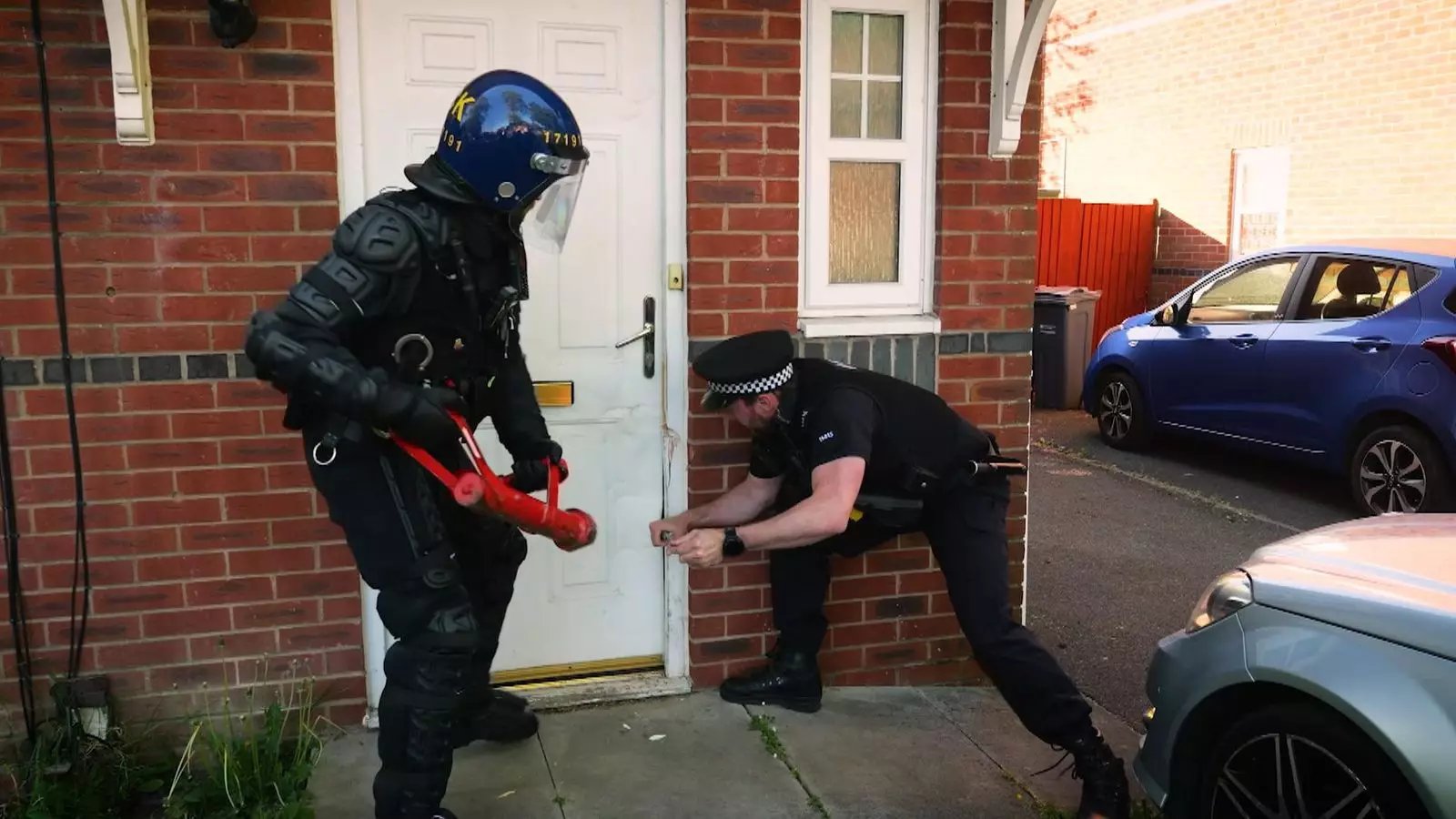In recent years, a grave and disturbing trend has emerged in urban neighborhoods: organized criminal gangs are increasingly leveraging rented homes and apartments to set up illegal cannabis farms. This rise in criminal activity casts a dark shadow over communities, not merely for its direct implications on drug culture but for the unforeseen dangers it imposes on innocent neighbors. The use of makeshift extraction and diversion techniques to avoid hefty electricity bills highlights the rampant negligence that these operations embody. It’s not just the purity of the product on their minds; the lives of unsuspecting individuals in the vicinity hang in the balance.
Haphazardly rigged electrical systems can create fire hazards, resulting in catastrophic outcomes. The shocking reality is that these operations, often masked by the allure of easy money, can lead to calamitous fires endangering entire neighborhoods. The risks cannot be overstated; aside from compromised safety, the very essence of community trust is frayed when the tranquility of a suburb is cannibalized by such illicit activities.
Violence: The Dark Underbelly of Drug Trade
What’s equally grisly about this scenario is the rival gang violence that permeates these underground enterprises. “Taxing,” a barbaric practice where competing gangs raid one another’s operations, often leads to brutal confrontations, with innocent bystanders caught in the crossfire. This isn’t just about weed; it’s about power and territorial dominance. Local law enforcement’s data reflects a stark reality: the sheer number of identified cannabis farms—like the 402 uncovered by Greater Manchester Police—suggests an extensive network of operations that thrive on uncertainty, fear, and violence.
When police raid these makeshift grow-ops, the findings are harrowing. In one example, a Wythenshawe home was found not only hosting a flourishing cannabis harvest but also indicative signs of dangerous electrical manipulations. Beyond legal consequences and property damage, the psychological toll on these neighborhoods is immense. There’s an insidious anxiety that permeates every day as residents grapple with the knowledge that their home could become a battleground overnight.
A Community’s Moral Quandary
The death of seven-year-old Archie York in a tragic explosion tied to a cannabis factory underscores the potentially lethal ramifications of these operations. The incident serves as a grim reminder that a dysfunctional criminal ecosystem not only targets its participants but also unwittingly penalizes the innocent. The public outcry following such tragedies often leads to a polarized debate about the legalization and regulation of cannabis, diverting attention away from the immediate dangers posed by the organized crime that governs the current black market.
In a bid to mask responsibility, gangs utilize low-level operatives, often referred to as ‘gardeners,’ who unwittingly become the foot soldiers of an empire preferring invisibility. This exploitative recruitment strategy ensures that the masterminds remain shielded from law enforcement scrutiny. The reality is alarmingly clear: those who are on the front lines of these operations are often individuals coerced into taking the fall, exacerbating their plight while duplicitous criminals in the shadows evade accountability.
Systemic Failures of Oversight
The failure extends beyond the criminals; it encrypts a widespread lack of awareness amongst landlords, many of whom unknowingly furnish these nefarious gangs with a roof under which to operate. This lack of vigilance does not merely invite legal troubles; it devastates the fabric of neighborhoods. The astonishment and despair expressed by legitimate landlords who have seen their properties razed to the ground echo a larger issue—a systemic oversight that allows such dangerous enterprises to flourish under the radar.
When contact is made with property owners, the shock and disbelief aren’t just reactions to their property’s degradation, but a realization that even the most benign of rental agreements can unwittingly intertwine them with crime. Without adequate education and vigilance, communities remain at risk, fueling a cycle where the despair of one inadvertently contributes to the peril of many.
As the discourse around cannabis continues to evolve, it is imperative to focus on the systemic issues perpetuating this chaos. From recognizing the telltale signs of illicit farms to promoting solidarity in community safety, the road ahead requires collective vigilance and action—before more lives are lost in the shadows of this burgeoning crisis.


Leave a Reply